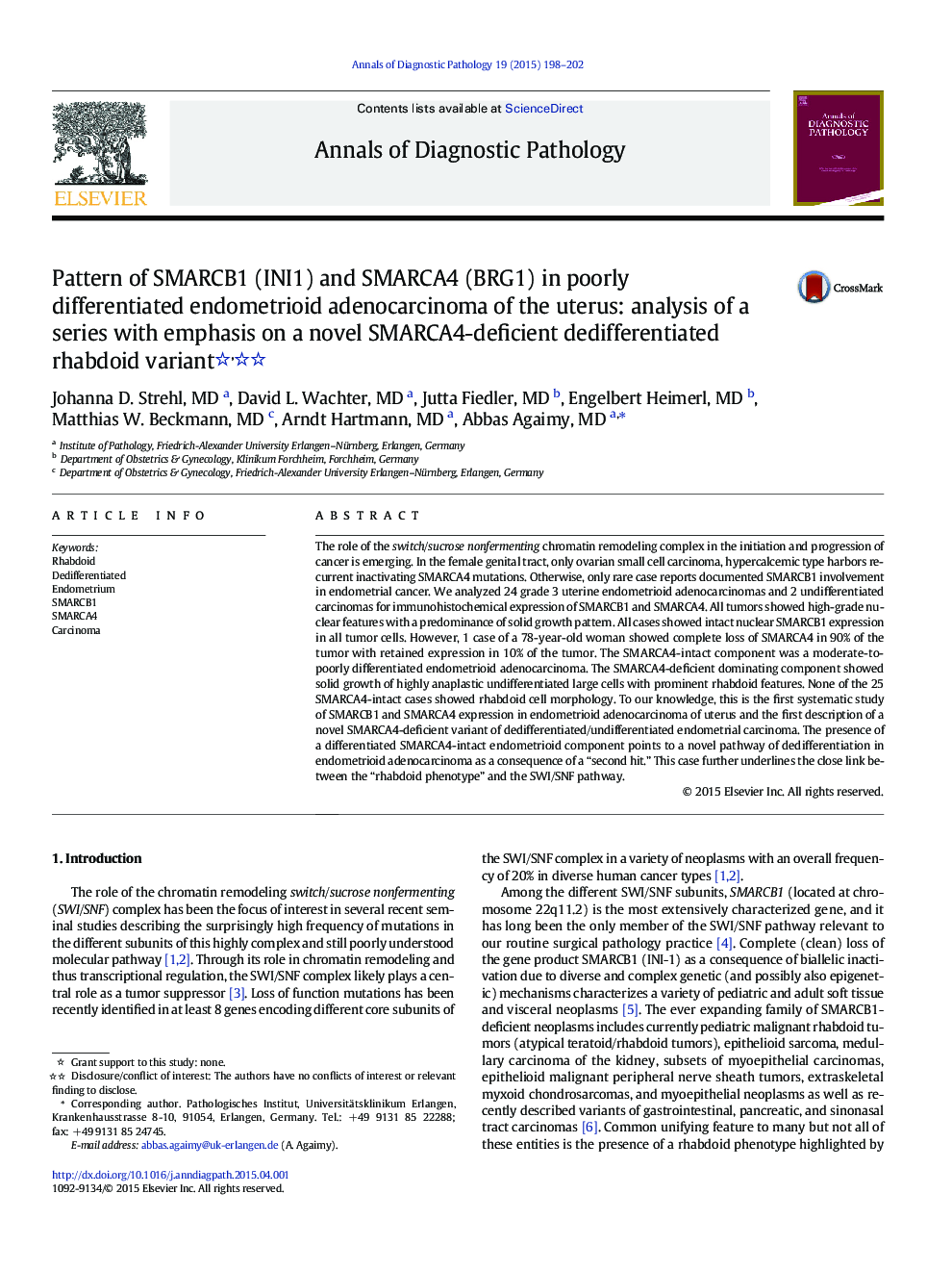| Article ID | Journal | Published Year | Pages | File Type |
|---|---|---|---|---|
| 4129769 | Annals of Diagnostic Pathology | 2015 | 5 Pages |
The role of the switch/sucrose nonfermenting chromatin remodeling complex in the initiation and progression of cancer is emerging. In the female genital tract, only ovarian small cell carcinoma, hypercalcemic type harbors recurrent inactivating SMARCA4 mutations. Otherwise, only rare case reports documented SMARCB1 involvement in endometrial cancer. We analyzed 24 grade 3 uterine endometrioid adenocarcinomas and 2 undifferentiated carcinomas for immunohistochemical expression of SMARCB1 and SMARCA4. All tumors showed high-grade nuclear features with a predominance of solid growth pattern. All cases showed intact nuclear SMARCB1 expression in all tumor cells. However, 1 case of a 78-year-old woman showed complete loss of SMARCA4 in 90% of the tumor with retained expression in 10% of the tumor. The SMARCA4-intact component was a moderate-to-poorly differentiated endometrioid adenocarcinoma. The SMARCA4-deficient dominating component showed solid growth of highly anaplastic undifferentiated large cells with prominent rhabdoid features. None of the 25 SMARCA4-intact cases showed rhabdoid cell morphology. To our knowledge, this is the first systematic study of SMARCB1 and SMARCA4 expression in endometrioid adenocarcinoma of uterus and the first description of a novel SMARCA4-deficient variant of dedifferentiated/undifferentiated endometrial carcinoma. The presence of a differentiated SMARCA4-intact endometrioid component points to a novel pathway of dedifferentiation in endometrioid adenocarcinoma as a consequence of a “second hit.” This case further underlines the close link between the “rhabdoid phenotype” and the SWI/SNF pathway.
